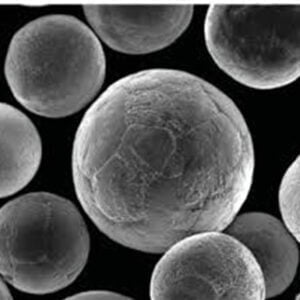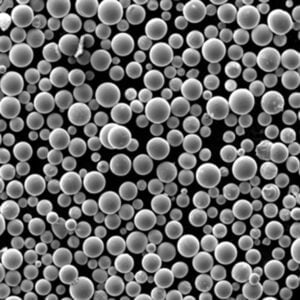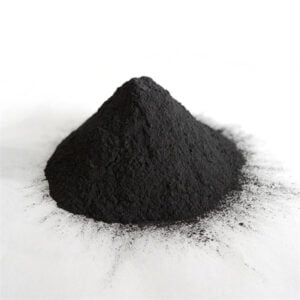Plazma Dönen Elektrot Süreci (PREP)
İçindekiler
Plazma Döndürmeli Elektrot İşlemine Genel Bakış
Bu Plazma Dönen Elektrot Süreci (PREP), olağanüstü saflık ve tekdüzeliğe sahip yüksek kaliteli metal tozları üretmek için gelişmiş bir yöntemdir. Bu tozlar, katkı maddesi imalatı, havacılık bileşenleri ve tıbbi implantlar dahil olmak üzere çeşitli uygulamalar için çok önemlidir. PREP, plazma arkı kullanılarak dönen bir metal çubuğun ucunun eritilmesini içerir ve damlacıkların püskürtülmesini ve ince tozlara katılaşmasını sağlar. Bu işlem, mükemmel akışkanlığa ve paketleme yoğunluğuna sahip küresel parçacıklar üretmesiyle ünlüdür.
Plazma Döndürmeli Elektrot İşleminin Temel Ayrıntıları:
- Süreç: Dönen bir metal çubuğu eritmek için plazma arkı kullanılır.
- Çıktı: Yüksek saflıkta, küresel metal tozları.
- Uygulamalar: Katmanlı üretim, havacılık, tıbbi implantlar, vb.
- Avantajlar: Yüksek saflıkta, mükemmel akışkanlıkta, homojen parçacık boyutunda.
- Sınırlamalar: Yüksek maliyetli, karmaşık ekipmanlar, belirli metallerle sınırlı.
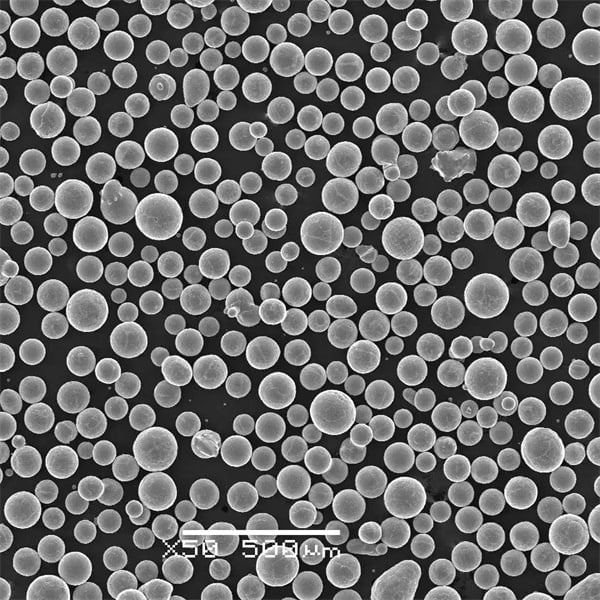
PREP Tarafından Üretilen Metal Tozlarının Türleri
Yaygın Metal Tozları:
| Metal Tozu | Kompozisyon | Özellikler | Özellikler |
|---|---|---|---|
| Titanyum (Ti) | Saf Ti veya Ti-6Al-4V | Yüksek mukavemet, korozyon direnci | Biyouyumlu, hafif |
| Nikel (Ni) | Saf Ni veya Ni bazlı süper alaşımlar | Yüksek sıcaklık dayanımı | Mükemmel sürünme direnci |
| Kobalt (Co) | Saf Co veya Co-Cr alaşımları | Aşınma direnci, mukavemet | Diş ve ortopedik implantlarda kullanılır |
| Alüminyum (Al) | Saf Al veya Al-Si alaşımları | Hafif, iyi iletkenlik | Mükemmel işlenebilirlik |
| Paslanmaz Çelik | Çeşitli SS sınıfları (304, 316, vb.) | Korozyon direnci, mukavemet | Çok yönlü, yaygın olarak kullanılan |
| Bakır (Cu) | Saf Cu | Mükemmel elektrik iletkenliği | Elektrikli bileşenlerde kullanılır |
| Tungsten (W) | Saf W veya W alaşımları | Yüksek yoğunluklu, ısı direnci | Havacılık ve savunmada kullanılır |
| Demir (Fe) | Saf Fe veya Fe bazlı alaşımlar | Manyetik özellikler, kuvvet | Mühendislik uygulamalarında yaygın olarak kullanılır |
| Zirkonyum (Zr) | Saf Zr veya Zr alaşımları | Korozyon direnci, biyouyumlu | Nükleer reaktörlerde ve tıbbi alanda kullanılır |
| Molibden (Mo) | Saf Mo veya Mo alaşımları | Yüksek sıcaklık dayanımı | Havacılık ve elektronikte kullanılır |
Uygulamaları Plazma Dönen Elektrot Süreci
Tipik Uygulamalar:
| Uygulama | Açıklama |
|---|---|
| Katmanlı Üretim | Metal tozları ile karmaşık, yüksek mukavemetli bileşenlerin katman katman üretilmesi |
| Havacılık ve Uzay Bileşenleri | Uçak ve uzay araçları için hafif, yüksek performanslı parçalar üretmek |
| Tıbbi İmplantlar | Diş ve ortopedik cihazlar gibi hassas geometrilere sahip biyouyumlu implantlar oluşturmak |
| Otomotiv Endüstrisi | Araçlar için hafif ve dayanıklı parçalar üretmek |
| Enerji Sektörü | Nükleer reaktörler ve enerji santralleri için bileşen üretimi |
| Elektronik | Elektronik cihazlar için iletken parçalar ve ısı emiciler üretmek |
| Takımlar ve Kalıplar | Çeşitli endüstriler için dayanıklı, yüksek hassasiyetli takımlar ve kalıplar üretiyoruz |
Spesifikasyonlar, Boyutlar, Kaliteler ve Standartlar
Ayrıntılı Özellikler:
| Metal Tozu | Boyutlar (µm) | Notlar | Standartlar |
|---|---|---|---|
| Titanyum (Ti) | 15-45, 45-90, 90-150 | 1. Sınıf, 2. Sınıf | ASTM B348, ASTM F67 |
| Nikel (Ni) | 10-50, 50-100 | Inconel 625, 718 | ASTM B883 |
| Kobalt (Co) | 10-45, 45-100 | CoCrMo, CoCrW | ASTM F75, ASTM F1537 |
| Alüminyum (Al) | 10-50, 50-150 | 6061, 7075 | ASTM B928, ASTM B209 |
| Paslanmaz Çelik | 15-45, 45-90 | 304, 316L | ASTM A276, ASTM A240 |
| Bakır (Cu) | 15-45, 45-90 | C10100, C11000 | ASTM B152, ASTM B187 |
| Tungsten (W) | 10-45, 45-150 | Saf W | ASTM B777 |
| Demir (Fe) | 10-50, 50-100 | Saf Fe, FeSi | ASTM A848 |
| Zirkonyum (Zr) | 15-45, 45-90 | Zr702, Zr705 | ASTM B550 |
| Molibden (Mo) | 10-45, 45-100 | Saf Mo | ASTM B387 |
Tedarikçiler ve Fiyatlandırma Detayları
Metal Tozu Tedarikçileri:
| Tedarikçi | Sunulan Metal Tozları | Fiyatlandırma (kg başına) | Ek Hizmetler |
|---|---|---|---|
| AP&C | Ti, Ni, Co, Al, SS, Cu, W, Fe, Zr | $150 – $500 | Özel partikül boyutu dağılımı |
| GKN Katkı Maddesi | Ti, Ni, Co, Al, SS, Cu, W, Fe, Zr | $100 – $450 | Ar-Ge desteği, özel alaşım geliştirme |
| Marangoz Teknolojisi | Ti, Ni, Co, Al, SS, Cu, W, Fe, Zr | $120 – $480 | Malzeme testi, sertifikasyon |
| LPW Teknoloji | Ti, Ni, Co, Al, SS, Cu, W, Fe, Zr | $130 – $490 | Toz geri dönüşümü, karakterizasyon |
| Höganäs | Ti, Ni, Co, Al, SS, Cu, W, Fe, Zr | $110 – $470 | Uygulama mühendisliği, destek |
Plazma Dönen Elektrot Prosesinin Avantajları ve Sınırlamaları
Artıları ve Eksileri:
| Aspect | Avantajlar | Sınırlamalar |
|---|---|---|
| Parçacık Şekli | Yüksek akışkanlığa ve paketleme yoğunluğuna sahip küresel parçacıklar üretir | Partikül boyutu dağılımı üzerinde sınırlı kontrol |
| Saflık | İnert atmosfer ve minimum kontaminasyon nedeniyle yüksek saflıkta tozlar | Yüksek üretim ve ekipman maliyeti |
| Tekdüzelik | Tekdüze parçacık boyutu ve bileşimi | Ekipmanın kullanımı ve bakımındaki karmaşıklık |
| Çok Yönlülük | Çok çeşitli metaller ve alaşımlar için uygundur | Tüm metaller için uygun değildir; bazıları küresel parçacıklar oluşturmayabilir |
| Kalite | Minimum kirlilikle tutarlı kalite | Küçük ölçekli üretim için ilk kurulum ve işletme maliyetleri engelleyici olabilir |
| Uygulamalar | Hassasiyet ve güvenilirlik gerektiren yüksek teknoloji uygulamalarında yaygın olarak kullanılır | Daha yüksek maliyetleri haklı çıkarabilecek endüstrilerle sınırlıdır |
Metal Toz Modellerinin Ayrıntılı Analizi
Titanyum (Ti) ve Titanyum Alaşımları:
PREP tarafından üretilen saf titanyum (Sınıf 1) ve titanyum alaşımları (Ti-6Al-4V) gibi titanyum tozları, yüksek mukavemet-ağırlık oranları, korozyon direnci ve biyouyumlulukları nedeniyle oldukça değerlidir. Bu özellikler onları havacılık bileşenleri, tıbbi implantlar ve yüksek performanslı otomotiv parçaları için ideal hale getirir. Titanyum tozları, katkı üretim süreçleri için çok önemli olan mükemmel akışkanlıkları ile karakterize edilir.
Nikel (Ni) ve Nikel Esaslı Süper Alaşımlar:
Inconel 625 ve 718'inkiler de dahil olmak üzere nikel tozları, oksidasyona ve sürünmeye karşı olağanüstü dirençleri nedeniyle yüksek sıcaklık uygulamaları için olmazsa olmazdır. Bu tozlar, havacılık endüstrisinde türbin kanatları ve aşırı koşullara dayanması gereken diğer bileşenler için yaygın olarak kullanılır. PREP ile üretilen nikel tozlarının yüksek saflığı ve tekdüzeliği, bu zorlu ortamlarda optimum performansı garanti eder.
Kobalt (Co) ve Kobalt-Krom Alaşımları:
Kobalt tozları, özellikle CoCr ve CoCrMo alaşımları, aşınma direnci ve dayanıklılığıyla ünlüdür. Bu özellikler, dayanıklılığın ve biyouyumluluğun kritik olduğu diş ve ortopedik cihazlar gibi tıbbi implantlar için uygun hale getirir. PREP ile üretilen kobalt tozlarının küresel şekli ve yüksek yoğunluğu, bu uygulamalarda mükemmel performanslarına katkıda bulunur.
Alüminyum (Al) ve Alüminyum Alaşımları:
6061 ve 7075 alaşımları gibi alüminyum tozları hafiflikleri ve iyi iletkenlikleri nedeniyle değerlidir. Bu tozlar, yakıt verimliliğini ve performansını artıran hafif bileşenler üretmek için otomotiv ve havacılık endüstrilerinde yaygın olarak kullanılır. PREP tarafından üretilen ince, küresel parçacıklar üstün akışkanlık ve paketleme yoğunluğu sağlayarak bunları katkı üretimi için ideal hale getirir.
Paslanmaz Çelik:
304 ve 316L kaliteleri de dahil olmak üzere paslanmaz çelik tozları,
dayanıklılık, korozyon direnci ve çok yönlülük arasında bir denge sunar. Bu tozlar, dayanıklılıkları ve üretim kolaylıkları nedeniyle inşaattan tıbbi cihazlara kadar çeşitli endüstrilerde kullanılır. PREP işlemi, paslanmaz çelik tozlarının güvenilir performans için olmazsa olmaz olan tutarlı kaliteye ve tekdüze parçacık boyutuna sahip olmasını sağlar.
Bakır (Cu) ve Bakır Alaşımları:
C10100 ve C11000 gibi bakır tozları, mükemmel elektriksel iletkenlikleri ve termal özellikleri nedeniyle önemlidir. Bu tozlar elektronik, elektrikli bileşenler ve ısı eşanjörlerinde yaygın olarak kullanılır. PREP ile üretilen bakır tozlarının yüksek saflığı ve küresel şekli, bu uygulamalardaki performanslarını artırarak verimli iletkenlik ve ısı transferi sağlar.
Tungsten (W) ve Tungsten Alaşımları:
Tungsten tozları yüksek yoğunlukları ve ısı dirençleriyle bilinir ve bu da onları havacılık ve savunma endüstrilerindeki uygulamalar için uygun hale getirir. PREP tarafından üretilen küresel parçacıklar, roket nozulları ve radyasyon kalkanı gibi yüksek performanslı bileşenlerin üretimi için çok önemli olan düzgün paketleme ve akışkanlığı sağlar.
Demir (Fe) ve Demir Esaslı Alaşımlar:
Saf demir ve demir-silisyum alaşımları da dahil olmak üzere demir tozları, manyetik özellikleri ve mukavemetleri nedeniyle mühendislik uygulamalarında yaygın olarak kullanılır. Bu tozlar, manyetik çekirdekler ve yapısal parçalar gibi bileşenlerin üretimi için olmazsa olmazdır. PREP işlemi, tutarlı performans için kritik olan yüksek saflık ve tekdüze parçacık boyutunu garanti eder.
Zirkonyum (Zr) ve Zirkonyum Alaşımları:
Zr702 ve Zr705 gibi zirkonyum tozları, korozyon direnci ve biyouyumlulukları nedeniyle değerlidir. Bu özellikler, implantlar ve cerrahi aletler dahil olmak üzere tıbbi uygulamalar ve nükleer reaktörlerde kullanım için idealdir. PREP ile üretilen zirkonyum tozlarının küresel şekli ve yüksek saflığı, bu kritik uygulamalarda güvenilir performans sağlar.
Molibden (Mo) ve Molibden Alaşımları:
Molibden tozları yüksek sıcaklık dayanıklılığı ve iletkenliği nedeniyle değerlidir. Bu tozlar havacılık ve elektronik endüstrilerinde aşırı koşullara dayanması gereken bileşenler için kullanılır. PREP işlemi, tekdüze parçacık boyutuna ve yüksek saflığa sahip molibden tozları üretir ve zorlu uygulamalarda etkililiğini garanti eder.
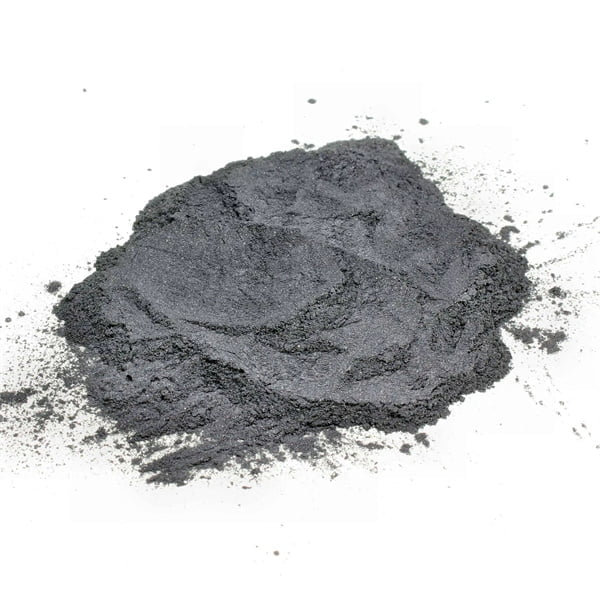
SSS
| Soru | Cevap |
|---|---|
| Nedir? Plazma Dönen Elektrot Süreci (HAZIRLIK)? | PREP, plazma arkı kullanılarak dönen bir metal çubuğun ucunun eritilmesiyle yüksek saflıkta, küresel metal tozları üretme yöntemidir. |
| PREP kullanılarak hangi metaller işlenebilir? | PREP, titanyum, nikel, kobalt, alüminyum, paslanmaz çelik, bakır, tungsten, demir, zirkonyum ve molibden dahil olmak üzere çok çeşitli metalleri işleyebilir. |
| PREP'in metal tozu üretiminde kullanılmasının avantajları nelerdir? | PREP, yüksek saflık, homojen parçacık boyutu, mükemmel akışkanlık ve küresel parçacıklar üretme yeteneği sunarak yüksek teknoloji uygulamaları için idealdir. |
| PREP’in sınırlamaları nelerdir? | İşlem pahalıdır, karmaşık ekipman gerektirir ve tüm metaller için uygun değildir. Ayrıca, parçacık boyutu dağılımını kontrol etmek zor olabilir. |
| PREP ile üretilen tozlar katkı imalatında nasıl kullanılır? | Bu tozlar, katman katman karmaşık, yüksek mukavemetli bileşenler oluşturmak için eklemeli üretimde kullanılarak kritik uygulamalarda hassasiyet ve güvenilirlik sunar. |
| Metal tozlarında küresel parçacıklar neden önemlidir? | Küresel parçacıklar, katkı imalatı ve toz metalurjisi gibi uygulamalarda tutarlı performans için hayati önem taşıyan daha iyi akışkanlık ve paketleme yoğunluğu sağlar. |
| PREP tıbbi implantlarda kullanılan metal tozlarının üretiminde kullanılabilir mi? | Evet, titanyum ve kobalt-krom alaşımları gibi PREP ile üretilen tozlar, hassas geometrilere sahip biyouyumlu tıbbi implantlar oluşturmak için yaygın olarak kullanılmaktadır. |
| PREP ile üretilen nikel esaslı süper alaşımların temel uygulamaları nelerdir? | PREP tarafından üretilen nikel esaslı süper alaşımlar, mükemmel oksidasyon ve sürünme dirençleri nedeniyle havacılık endüstrisindeki türbin kanatları gibi yüksek sıcaklık uygulamalarında kullanılmaktadır. |
| PREP ile üretilen tozların maliyeti diğer yöntemlerle karşılaştırıldığında nasıldır? | PREP ile üretilen tozlar, proses ve ekipmanların yüksek maliyeti nedeniyle genellikle daha pahalıdır, ancak kritik uygulamalar için üstün kalite ve performans sunarlar. |
| PREP sürecinde çevresel kaygılar var mı? | PREP, kontaminasyonu ve çevresel etkiyi en aza indiren inert bir atmosferde gerçekleştirilir; ancak sürecin enerji yoğun yapısı endişe verici olabilir. |
Sonuç
Plazma Döndürmeli Elektrot İşlemi (PREP), çeşitli gelişmiş uygulamalar için gerekli olan yüksek kaliteli metal tozları üretmek için birinci sınıf bir yöntem olarak öne çıkmaktadır. Havacılık bileşenlerinden tıbbi implantlara kadar PREP ile üretilen tozların saflığı, tekdüzeliği ve küresel şekli üstün performans ve güvenilirlik sağlar. İşlem yüksek maliyetler ve karmaşık ekipman gereksinimleri ile birlikte gelse de, avantajları onu hassasiyet ve kalitenin çok önemli olduğu endüstrilerde değerli bir teknoloji haline getirir. Teknoloji ilerledikçe, PREP'teki diğer yeniliklerin verimliliğini artırması ve uygulanabilirliğini genişletmesi, malzeme bilimi ve mühendisliğinin geleceğindeki rolünü sağlamlaştırması muhtemeldir.
daha fazla 3D baskı süreci öğrenin
Paylaş
MET3DP Technology Co, LTD, merkezi Qingdao, Çin'de bulunan lider bir katmanlı üretim çözümleri sağlayıcısıdır. Şirketimiz, endüstriyel uygulamalar için 3D baskı ekipmanları ve yüksek performanslı metal tozları konusunda uzmanlaşmıştır.
İşletmeniz için en iyi fiyatı ve özelleştirilmiş Çözümü almak için sorgulayın!
İlgili Makaleler

Yüksek Performanslı Nozul Kanat Segmentleri: Metal 3D Baskı ile Türbin Verimliliğinde Devrim
Daha Fazla Oku "Met3DP Hakkında
Son Güncelleme
Bizim Ürünümüz
BİZE ULAŞIN
Herhangi bir sorunuz var mı? Bize şimdi mesaj gönderin! Mesajınızı aldıktan sonra tüm ekibimizle talebinize hizmet edeceğiz.

3D Baskı ve Katmanlı Üretim için Metal Tozları
ÜRÜN
cONTACT BİLGİLERİ
- Qingdao Şehri, Shandong, Çin
- [email protected]
- [email protected]
- +86 19116340731






